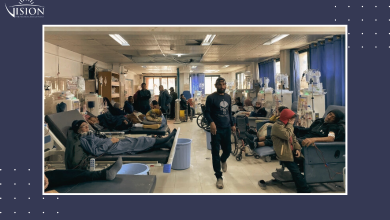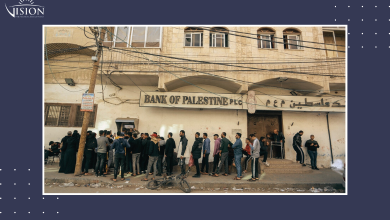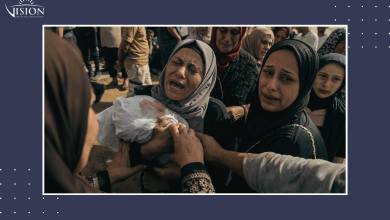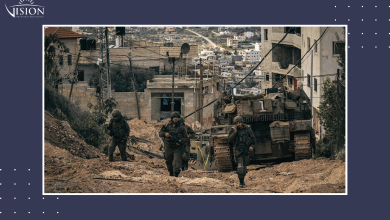The West Bank Arena: Will the Confrontation be Hastened or Postponed?
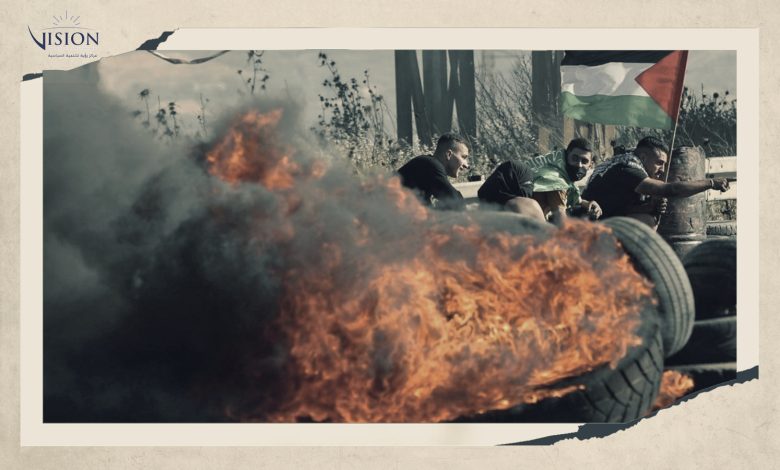
Sulayman Bisharat
The occupation continues to escalate targeting the Palestinians in the West Bank at an alarming pace since the beginning of this year. Over 60 Palestinians, including nine children and a woman have been executed by Israeli apparatus, along with the demolition of 43 houses in the West Bank and occupied Jerusalem, including the houses of Palestinian families whose members accused of carrying out resistance operations. Additionally, the Knesset has passed a law to revoke their residency permits and expel them to the West Bank. These Israeli procedures have led to a boiling point within Israeli prisons, where Palestinian detainees announced a mass disobedience campaign protesting the measures taken by the occupation to deprive them of the basic rights. Up to this time, the detainees are calling for a mass mobilization in support of their cause and threatening to engage in a direct battle.
Settlement construction wise, the Israeli government took unprecedented decisions in the past week to bolster settlements in the West Bank, which included the approval of a governmental committee for legislative affairs to cancel the “Disengagement Law” [2] of 2005. This is accompanied with the escalating and semi-organized violations committed by settlers as well as the legalization of 9 settlement outposts.
Amid this crisis, there have been discussions between American, Israeli, and Palestinian officials in order to suspend the occupation’s escalation for several more months. This raises several important questions, such as how the escalation by the occupation will affect the future circumstances in the West Bank and whether this escalation will lead to a comprehensive confrontation. Alternatively, are there other factors that will redraw the equation anew?
Scenario of Escalation:
There are several factors that could contribute to an escalation of violence on the ground, which consensually leading to a widespread popular uprising or a confrontation resembling a comprehensive one. These factors can be summarized as follows:
Armed resistance groups: Despite targeting the “Den of Lions” group in Nablus and the “Jenin Brigade” in recent months through assassination, detention, and attempts to dismantle their formations, the occupation has not been able to eliminate them to this moment. Consequently, these groups have remained present models to the resisters – even if the occupation puts efforts to eradicate them – and to mobilize and inspire the Palestinian revolutionary spirit in all over cities.
Internal crisis in Israel: There is a noticeable pattern in the behavior of Israeli governments when facing internal pressures, in which it tries to redirect the crisis by focusing on certain external concerns and particularly security challenges. Currently, this internal pressure is represented by escalating protests against the Netanyahu government’s steps towards the Israeli judiciary. This means that the escalation on the ground in the West Bank, and possibly in Gaza, could be an outlet for the current extremist government.
The Palestinian internal crises: The Palestinian scene is internally going through a series of crises such as the escalating labor protests, the strikes by the unions of lawyers and teachers, the salary government employees crisis, and the widening trust gap between the popular level and the official political level. These crises boost the loss of hope in any political promises or even can lead to a future political expulsion. As a result, the state of Palestinian internal tension may represent a ticking time bomb that could explode at any moment.
Persistent political impasse: there is no prospect of any internal Palestinian consensus to restore democratic and electoral life to institutions at all levels, or even to implement any of the previous agreements. This leaves the Palestinian internal situation unstable and vulnerable to an unfavorable deviation that may be directed and used by the Israeli occupation.
Approaching Ramadan: Israeli security circles express their concerns every year as Ramadan approaches due to the escalation of events in the occupied West Bank and Jerusalem. This year, the occupation is preparing even more extensively, especially in light of the increasing Israeli violations in the occupied city of Jerusalem, and the repeated threatening made by extremist Israeli leaders and government ministers, including Ben Gvir, to continue and escalate the situation in Jerusalem, especially during Ramadan. This could spark a wider confrontation during the holy month.
Scenario of De-escalation:
Despite the factors of escalation, the endeavors to find solutions, or initiate temporary assurances can delay any potential explosion. These insurances recently announced as a result to the understandings between the United States, Israel, and the Palestinian Authority, where the US administration pressured the Palestinians to withdraw their proposal condemning settlements in the Security Council and replace it with a statement from the Council. This happened after the visit of William Burns, the Director of the Central Intelligence Agency, to the region, who warned of the situation in the occupied territories that could lead to a “third intifada”. According to the Hebrew site “Walla”, these agreements include Israel’s commitment to freeze additional construction plans in the settlements for several months, freezing the demolition of Palestinian homes in the West Bank and East Jerusalem for several months, freezing the evacuation of Palestinians from their homes in the Area C for months, and reducing Israeli incursions into Palestinian cities, in addition to take several procedures on the ground.
It is likely that these agreements are nothing more than ink on paper, and their primary purpose was to convince the Palestinians to withdraw their proposed condemnation of settlement expansion in the West Bank.
There are several factors that reinforce this belief:
Lack of guarantee for the promises made by the occupation: Whenever the Israeli occupation promise to calm the situation down, it does not adhere to it. This stems from its security and political priorities. Therefore, there is no real guarantor to compel the occupation to de-escalate tensions. This could make the situation vulnerable to any unexpected developments.
Palestinian political weakness: in regard to the weakness of Palestinian political performance, the Palestinians lack the leverage to force the occupation or to push the United States to act as a guarantor for any agreements. This means that they can only rely on time and gamble on any potential favorable changes. However, this orientation could push the situation towards a popular explosion or confrontation with the occupation.
Arab and regional states have become involved in multiple issues: Prioritizing Palestinian cause is no longer active within the agendas of Arab and regional political actors. Alternatively, regional powers use the Palestinian cause nowadays more as a mean to acquire political credits in the region. This can lead to widen Arab-Israeli normalization.
Conclusion
The Palestinian situation remains subject to several factors and developments on the ground, however, there is a certain state of boiling and internal pressure, which may lead to an open confrontation with the occupation, even if the parties succeed in postponing it for a limited period of time. If such a confrontation occurs, it will be difficult to predict the nature of the potential transformations, particularly in the absence of effective Palestinian political leadership and the weakness of political organizations.
[1] A researcher at the Yabous Institute for Consultancy and Strategic Studies, Ramallah. [2] “Disengagement” was a unilateral Israeli plan executed by former Prime Minister Ariel Sharon’s government in the summer of 2005, which involved the evacuation of settlements and military camps in the Gaza Strip, as well as four settlements in the northern West Bank. The new law project calls for the cancellation of the disengagement and the rebuilding of settlements in the northern West Bank.

